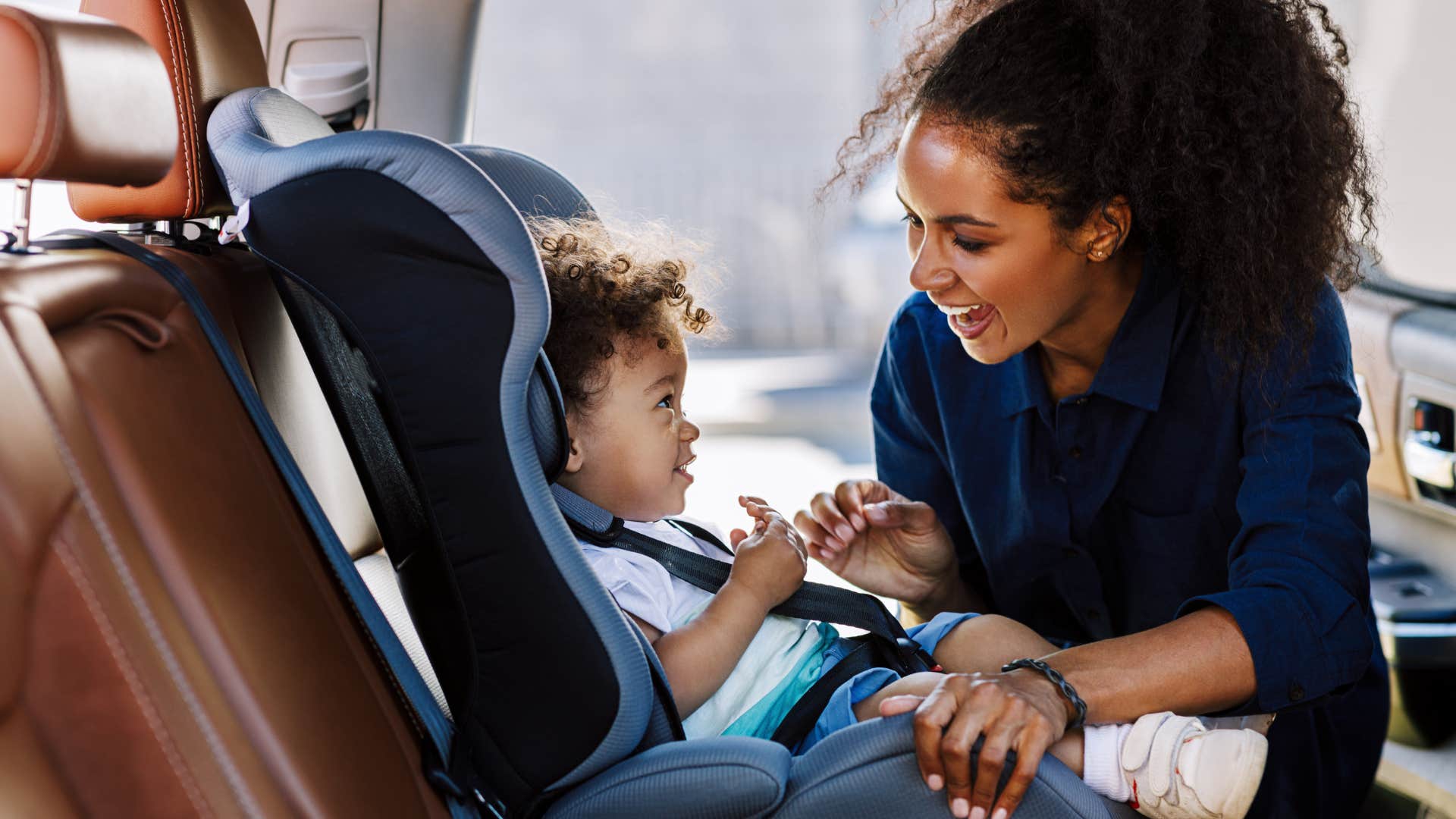11 Old-Fashioned Things Millennials Refuse To Do Anymore
Times have changed, but so have millennials.
 Fizkes | Shutterstock.com
Fizkes | Shutterstock.com Of course, each generation has its own quirks and uniqueness, contributing to the way they navigate the world — from Gen Z trailblazing new expectations in the corporate culture to the old-fashioned things millennials refuse to do anymore.
The growing generational divide in the United States can be explained by a variety of factors, from changing cultural demographics to financial burdens and child/senior dependency rates across generations. The interwoven resentment, fueled by each generation’s unique struggles and entitlement, has kept this divide from healing.
Times are changing, and of course, so are we.
Here are 11 old-fashioned things millennials refuse to do anymore
1. Maintain a physical checkbook
 Ground Picture | Shutterstock.com
Ground Picture | Shutterstock.com
The majority of people have stopped using checks these days, to the extent that papers checks accounted for only 3.8% of all consumer transactions in 2022. From paying their rent to checking out at the grocery store, and sending in monthly utility payments, there’s more convenient options for making payments than writing and sending checks.
When it comes to balancing their checkbook or reviewing their statements, most haven’t needed to adopt the financial habit of writing checks. At the very most, they check their mobile banking from time-to-time to investigate some weird charge after getting a text from their bank.
2. Pay for a landline
 Josep Suria | Shutterstock.com
Josep Suria | Shutterstock.com
According to a report from the National Center for Health Statistics, nearly 76% of adults and 87% of children don’t live in a household with a landline – and why would they? With changing infrastructure, technology, and a growing emphasis on convenience over cost, most people use a mobile phone to stay in touch anyway, even from their home.
Of course, this isn’t solely a choice made by millennials, despite being one of the first generations to adopt the shift to mobile phones. Mobile service and connectivity are more reliable now, cell phones are more accessible, and the majority of professional and personal expectations rely on their usage. It’s simply a result of changing times.
3. Hang out at the mall
 Prostock-studio | Shutterstock.com
Prostock-studio | Shutterstock.com
Sadly, a trend that was once popular for millennials in their adolescent years, the popularity of hanging out at the mall is nearly over. Economics writer Nelson D. Schwartz argues in “The Economics (And Nostalgia) of Dead Malls” that it’s not just changing social trends that explain the decline of malls, but also rising financial insecurity and the deafening growth of income inequality across the country.
The convenience of online shopping and, importantly, online communities has altered the social aspect of mall ventures. Income inequality has allowed high-end malls to thrive, while low and middle class-centered stores like Sears and J.C. Penney falter. Now, failing infrastructure and minimum wage workers are the only things inside a mall — and occasionally, a last minute shopper who can’t utilize Amazon Prime for a gift.
4. Let their kids walk to school alone
 Artem Varnitsin | Shutterstock.com
Artem Varnitsin | Shutterstock.com
While it might have been a core experience in their own childhood, many younger millennial parents are taking a much different approach to ensuring the safety and protection of their kids. Alarming news stories readily available online have instilled a greater sense of fear in many modern parents.
Parents are now more protective of their kids than ever, and the average age of children venturing out of the house alone is growing older and older. They’re driven to school, restricted from unsupervised play outside the house, and sheltered under the protective watch of their parents.
5. Use a physical doorbell
 Prostock-studio | Shutterstock.com
Prostock-studio | Shutterstock.com
With a tendency to rely on the convenience of cell phones for most mundane activities, from ordering groceries to catching up on work, it’s not surprising that millennials are almost single-handedly responsible for ruining the doorbell industry.
With a simple text — “here” — most people don’t even need to get out of their cars when they’re picking someone up, whether it’s a first date (controversial) or a meeting up with a friend.
6. Write hand-written letters
 Dikushin Dmitry | Shutterstock.com
Dikushin Dmitry | Shutterstock.com
Despite a recent resurgence of handwritten letters and pen pals during the pandemic, millennials largely rely on technology and their cell phones to get in touch with the people in their lives. A study from ipostparcels found that nearly 40% of millennials have never even sent a hand-written letter.
Online communities, social media, and the convenience of text messages and video calls has allowed for many in younger generations, millennials included, to maintain their relationships and inner circles without ever lifting a pen. Not only has it given them the accessibility to do so, it’s become a pillar of many relationships to stay connected and engaged online.
7. Hang out in public spaces like libraries
 Xavier Lorenzo | Shutterstock.com
Xavier Lorenzo | Shutterstock.com
Many millennials are missing out on “third places” experiences. Places like public libraries and parks have become inaccessible due to failing infrastructures, the expense of transportation, lack of funding for public spaces, and entry fees.
A 2018 study on socialization reports that people are now spending nearly 70% more time at home than in the past — not necessarily because they’re choosing to, but because there’s lacking infrastructure to support in-person communities and their need for connection.
Imagine you want to work from a coffee shop one day so you can talk with a few strangers and get out of the house. With rising prices, the average latte costs nearly $10 with a tip, gas prices are expensive, parking is nearly always $5 an hour, public transportation is unsafe, and in many places, completely impossible to utilize. On top of all that financial obligation, you’re also stuck fighting for an outlet for your old Macbook’s battery you can’t afford to replace. Working from home or just hanging out at a friend's house because your only reasonable options.
8. Leave voicemails
 Unai Huizi Photography | Shutterstock.com
Unai Huizi Photography | Shutterstock.com
A Pew Research Center study from 2015 revealed that the majority of phone calls millennials make are with close friends and family. They don't necessarily feel pressure to leave a voicemail or request a call back, they’ll just try again later. Of course, that’s if they make the choice to call anyway — with a modern reliance on convenience, many people prefer to send texts.
Many also know that their phone numbers will show up as missed calls anyway. So whoever they were trying to get in touch with is expected to simply figure it out and call them back.
9. Hail a taxi
 People Images Yuri A | Shutterstock.com
People Images Yuri A | Shutterstock.com
Especially for millennials living in larger metropolitan areas and cities, actually hailing or flagging down a taxi on the side of the road is a last resort. With the growing popularity of ride share apps like Uber and Lyft, there’s no reason to stand outside or assert yourself in traffic, you can do everything from your phone — there’s safety, easy communication, price transparency, and of course, convenience.
While this changing behavior has caused a shift in the driving and taxi market, according to a 2019 study, it’s only reflective of the changing norms, expectations, and technologies that millennials have been forcibly at the cusp of for their entire lives.
10. Use paper napkins
 Prostock-studio | Shutterstock.com
Prostock-studio | Shutterstock.com
While it’s seemingly random, one of the old-fashioned things millennials refuse to do anymore is purchase paper products like napkins, at least according to marketing intelligence agency Mintel. Their survey revealed that only 56% of consumers have purchased paper napkins recently, which they said is due to changing food preferences and shifts in formal etiquette.
Many millennials are eating their meals on the go, especially on the way to work or dropping their kids off at school. They prefer to utilize paper towels for convenience during meals over traditional paper napkins. Again, it’s convenient, but this changing behavior also reflects changing norms — they’re prioritizing saved time, productivity, and efficiency, over time to sit down for a meal at home.
11. Live in a big city
 Ground Picture | Shutterstock.com
Ground Picture | Shutterstock.com
Millennials’ homeownership and living preferences are shifting in 2024, as they’re getting “priced out” of bigger cities and replaced by younger generations like Gen Z. As they start their families and get deeper into their careers, they’re forced to opt for cheaper, more accessible, and safe suburban areas.
Even for millennials not currently starting their own families, the rising cost of living in many urban hubs like New York City is completely inaccessible for saving money or making financial plans. If you’re not making nearly $200K annually, you’re going to be struggling to pay your rent, let alone save or invest money, buy groceries, pay loans off, or afford utilities on top of everything else.
Zayda Slabbekoorn is a staff writer with a bachelor’s degree in social relations & policy and gender studies who focuses on psychology, relationships, self-help, and human interest stories.

